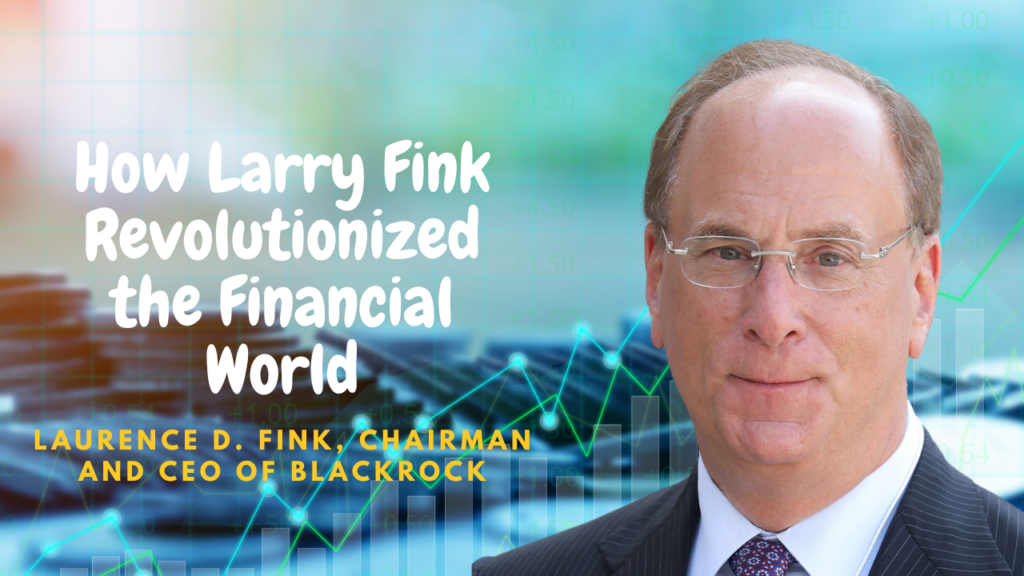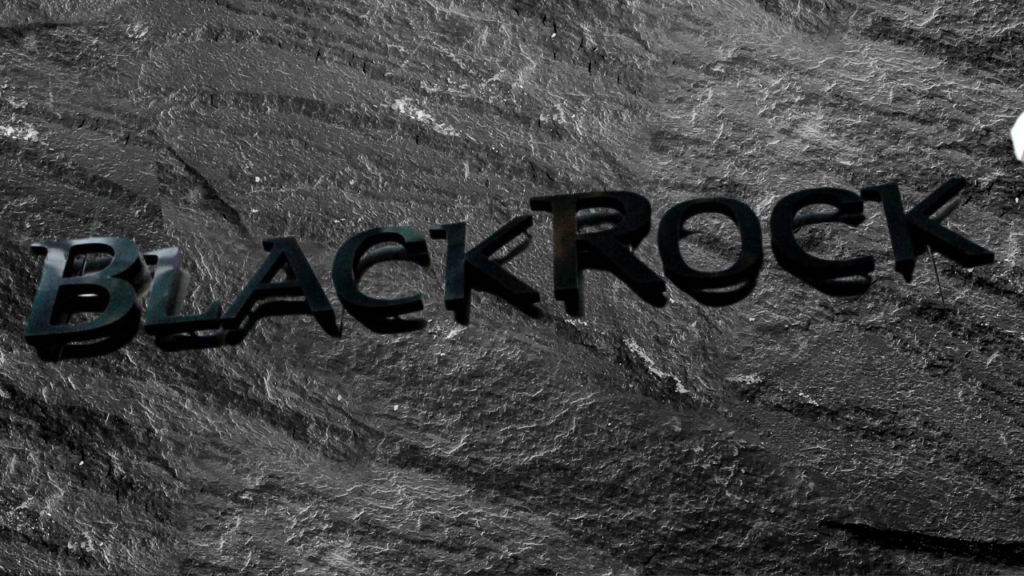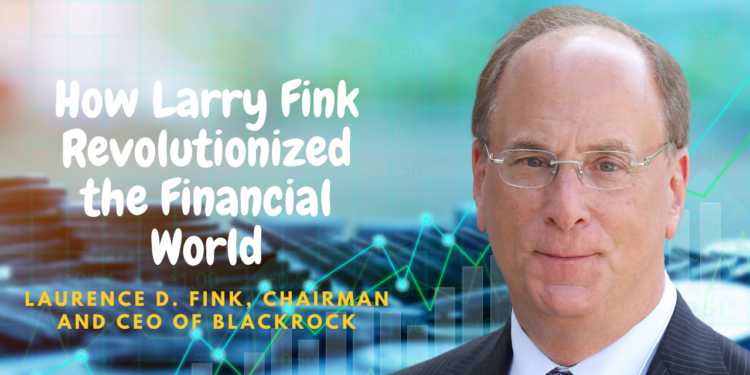How Larry Fink Revolutionized the Financial World. Larry Fink’s Remarkable Career Milestones in Revolutionizing the Financial World:
- Laurence D. Fink, Chairman and CEO of BlackRock, has experienced a journey in finance marked by both failures and remarkable successes.
- Fink’s academic journey includes a BA from UCLA in 1974 and an MBA from UCLA in 1976, providing a solid educational foundation.
- Before co-founding BlackRock in 1988, Fink gained valuable experience as a Managing Director at The First Boston Corporation.
- The establishment of BlackRock in 1988 was a significant turning point, with Fink and seven partners aiming to help clients build better financial futures.
- In the late 1990s, BlackRock faced a major setback due to significant losses from mortgage-backed securities, testing Fink’s leadership and resilience.
- Strategic acquisitions, such as the purchase of Barclays Global Investors in 2009, propelled BlackRock’s growth and solidified its position as an industry leader.

Success rarely comes without its fair share of failures and setbacks. Laurence D. Fink, Chairman, and Chief Executive Officer of BlackRock, embodies this truth in his remarkable journey through the world of finance. From facing significant challenges to achieving resounding success, Fink’s career is a testament to resilience, determination, and the transformative power of learning from failures.
Fink’s path to becoming a prominent figure in the financial industry began with his educational pursuits. After earning his BA from the University of California at Los Angeles (UCLA) in 1974, he continued his studies at UCLA to pursue an MBA, completing it in 1976. Equipped with a solid educational foundation, Fink embarked on a career that would shape the future of global finance.
Early in his career
Early in his career, Fink served as a Managing Director and member of the Management Committee at The First Boston Corporation. This experience allowed him to gain invaluable insights into the intricate workings of the financial world. However, it was his next venture that would truly define his path: the co-founding of BlackRock in 1988.
BlackRock’s establishment marked a pivotal moment in Fink’s career. The firm’s mission was clear: to help clients build better financial futures. Despite the grand vision, the journey was not without its hurdles. One notable setback occurred in the late 1990s when BlackRock faced substantial losses due to investments in mortgage-backed securities. However, Fink’s response to this crisis showcased his resilience and ability to lead through challenging times.
New Law in Saudi Arabia Opens Doors to Foreigners to Buy Property – Even in Holy Cities
Rather than succumbing to defeat, Fink confronted the situation head-on. He prioritized transparency, recognizing that open communication and honesty were essential to restoring trust. Fink ensured that BlackRock provided clients with accurate and timely information, outlining the steps being taken to address the crisis and mitigate risks. This commitment to transparency laid the foundation for a culture of trust within the company and among its clients.
Learning from the experience, Fink led the implementation of rigorous risk management measures and enhanced due diligence processes. These initiatives not only protected BlackRock from future losses but also solidified its reputation as a trusted partner in the financial industry. Fink’s ability to learn from failures and adapt to changing circumstances became a hallmark of his leadership style.

Under Fink’s stewardship, BlackRock thrived. The firm’s growth was fueled by strategic acquisitions, innovative product offerings, and a commitment to client success. Today, BlackRock manages more assets than any other investment company in the world, a testament to Fink’s visionary leadership and the trust he has instilled in clients.
Beyond his successes in finance
Beyond his successes in finance, Fink’s journey also highlights his commitment to philanthropy and public service. He has been actively involved with prestigious organizations such as New York University (NYU), the World Economic Forum, and the Museum of Modern Art, among others. Fink’s dedication to education, healthcare, and the arts demonstrates his broader vision of making a positive impact on society.
Larry Fink’s journey serves as a powerful reminder that failures do not define one’s path, but rather the response to them does. Fink’s ability to learn, adapt, and lead with integrity has been the catalyst for his success. His resilience in the face of adversity has not only shaped his own career but also inspires others to persevere through challenges.
As we reflect on Larry Fink’s journey, it becomes evident that his legacy is not solely built on his achievements but also on his ability to turn failures into opportunities for growth. Fink’s story serves as a beacon of hope for aspiring leaders, reminding them that success is not a linear path but a culmination of lessons learned, resilience, and unwavering determination.
By Alexander Han














